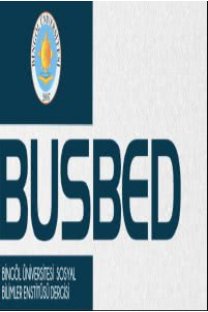1859 YILINDAKİ ŞAMAHI VE ERZURUM DEPREMLERİ HAKKINDA RUSYA BİLİMLER AKADEMİSİ ÜYESİ HERMANN VON ABICH’İN RAPORU
Karadeniz’den Hazar Denizi’ne kadar uzanan dağların adeta ortadan ikiye böldüğü Kafkasya, 18. yüzyıldan itibaren Rusya’nın genişleme alanlarından birisi olmuştur. Takip eden yüzyılda Za-Kafkasya olarak adlandırılan Güney Kafkasya bölgesi de dahil olmak üzere bütün bir Kafkasya’yı sadece siyasi ve askerî değil, aynı zamanda bilimsel çalışmalarla da domine etmeyi başaran Rusya, kurduğu Bilimler Akademisi bünyesindeki çalışmalarla tarih, coğrafya ve sosyoloji başta olmak üzere bir çok disiplini ilgilendiren envanter oluşturmayı başarmıştır. Üstelik bu bilimsel çalışmalar Osmanlı Devleti gibi diğer devletlerin egemenliğindeki topraklarda da yapılmıştır. 1859 yılında Şamahı’da ve Osmanlı hâkimiyetindeki Erzurum’da eş zamanlı depremlerin olması üzerine Bilimler Akademisi, uzun zamandır Kafkaslarda araştırmalar yapan Alman jeolog Abich’i bu bölgelerde sismik araştırmalar yapması için görevlendirmiştir. Abich, saha araştırmalarını akademiye Fransızca olarak sunduktan kısa bir süre sonra Rusça yayımlanan bu rapor, çalışmamızın en önemli kısmını oluşturmaktadır. Raporun, ilgili depremler hakkındaki saha araştırmalarının sonucuna geçmeden önceki giriş kısmında, jeoloji bilimine ait değerlendirmeler yapan Abich, Kafkasya bölgesinin bu bilim dalı için taşıdığı önemin üzerinde bilhassa durmuştur. Şamahı ve Erzurum depremleri hakkındaki incelemelerini ise barometre ve teknik cihazlar yardımıyla gerçekleştiren Abich, şehirlerin topografisi ve uğradığı yıkıma dair de önemli bilgiler vermiştir. Bu çalışmada yer alan raporun tercümesinin dışındaki kısımlarında, tarafımızca her iki depreme ve sebep olduğu tahribata dair birinci el kaynaklar ışığında bir değerlendirme de yer almaktadır.
THE REPORT OF HERMANN VON ABICH, MEMBER OF RUSSIAN ACADEMY OF SCIENCES, ABOUT THE SHAMAKHI AND THE ERZURUM EARTHQUAKES IN 1859
The Caucasus, where the mountains extending from the Black Sea to the Caspian Sea, is almost divided into two parts, has been one of the expansion areas of Russia since the 18th century. Russia, which managed to dominate the entire Caucasus, including the South Caucasus region, which was called ZaCaucasia in the following century, not only politically and militarily, but also through scientific studies with the studies it has established within the Academy of Sciences, it has managed to create an inventory that concerns many disciplines, especially history, geography and sociology. Moreover, these scientific studies were carried out in the territory of other states, such as the Ottoman State. In 1859, upon the simultaneous earthquakes in Shamakhy and Ottoman-dominated Erzurum, the Academy of Sciences commissioned the German geologist Abich, who has been conducting research in the Caucasus, to conduct seismic surveys in these regions. This report, which was published in Russian shortly after presenting her field research to the academy in French, constitutes the most important part of our study. In the introduction part of the report before the conclusion of the field researches on the related earthquakes, Abich, who made evaluations about geology, emphasized the importance of the Caucasus region for this branch of science. Abich, who carried out his investigations on the Shamakhy and Erzurum earthquakes with the help of barometers and technical devices, also gave important information about the topography of the cities and the destruction they suffered. In the sections of this study other than the translation of the report, there is also an evaluation by us in the light of first hand sources regarding both earthquakes and the destruction caused by it.
___
ArşivlerBOA (Türkiye Cumhuriyeti Cumhurbaşkanlığı Devlet Arşivleri Başkanlığı): İ.MMS (İrade Meclis-i Mahsus), nr. 15/629.
A.MKT.MHM (Sadaret, Mektubî, Mühimme Kalemi Evrakı), nr. 759/36.
Yayımlanmış Arşiv Belgeleri
Aktı, sabrannıye kavkazkoy arheografiçeskoy komissiey (AKAK), (1904), arhiv kantselyari glavnonaçalstvuyuşevo graşdanskoyu çastyu na kavkaz, tom: XII, Tiflis.
Gazeteler
CH (Ceride-i Havadis), nr. 941, 942.
Diğer Kaynaklar
DALYELL, Robert A. O. (1861-1862), “Memorandum-Earthquake of Erzerum, June 1859”, Proceedings of the Royal Geographical Society of London, Vol: VI, No: 2, pp. 62-64.
ERGİN, Kâzım-GÜÇLÜ, Uğur-UZ, Zeki (1964), Türkiye ve Civarının Deprem Kataloğu (Milâttan sonra 11 yılından 1964 sonuna kadar), İstanbul.
İzvestiya kavkazkovo otdela Russkovo geografiçeskovo obşestva, (1884-1885), Tom: VIII, No: 1, 1883, Tiflis, ss. 77.
LYNCH, T.K. (1868-1869), “Letter from T.K. Lynch, Esq., F.R.G.S., on Consul Taylor’s Journey to the Source of the Euphrates”, Proceedings of the Royal Geographical Society of London, Vol: XIII, No: 3, pp. 243-244.
MILNE, J. (1912) “Catalogue of Destructive Earthquakes”, Report of the Eightieth Meeting of the British Association for the Advancement of Science, Porstmouth:1911, August 31-September 7, London, pp. 649- 740.
ÖCAL, Nevzat (1961), 1850 Yılına Kadar I-VII İntensiteli Türkiye Zelzeleleri Kataloğu, İstanbul.
ÖNGÖR, Sami (1954), Coğrafi Keşifler ve Tetkik Seyahatleri Tarihi, İstanbul, Maarif Basımevi.
The Friend A Religious and Literary Journal, (1860), Vol: XXXIII, No: 25, Seventh-Day, Second Month 25, pp. 194.
TOZLU, Selahattin (2001), “Erzurum Tarihinde Depremler”, Tarih Boyunca Anadolu’da Doğal Afetler ve Deprem Semineri, İstanbul Üniversitesi Edebiyat Fakültesi Tarih Araştırma Merkezi, 22-23 Mayıs 2000, İstanbul, ss. 93-117.
Zapiski kavkazkavo atdela imparatorskavo ruskavo geografiçeskavo obşestva (1862), Knijka v izdannaya pod redaksieyu A.T. Filadelfina i L.P. Zagurskavo, Tiflis.
http://www.timeanddate.com/calendar/custom.html?year=1859&country=9&col s=3&df=1&hol=12706623; http://tureng.com/search/pentecost Erişim tarihi: 4 Mart 2020
https://dic.academic.ru/dic.nsf/enc_biography/191/%D0%90%D0%B1%D0%B8 %D1%85 Erişim tarihi: 5 Mart 2020.
- ISSN: 1309-6672
- Yayın Aralığı: Yılda 2 Sayı
- Başlangıç: 2011
- Yayıncı: Yusuf Aydoğdu
Sayıdaki Diğer Makaleler
EFFECT OF SOCIAL MEDIA MARKETING ON E-WOM, BRAND LOYALTY, AND PURCHASE INTENT
TEDARİK ZİNCİRİ İZLENEBİLİRLİĞİ VE SÜRDÜRÜLEBİLİRLİĞİNDE YENİ PARADİGMA: BLOKZİNCİR
MODELLING CAUSAL RELATIONSHIPS AMONG TOURISM, ENERGY, CO2 EMISSIONS AND ECONOMIC GROWTH
ETRÜSK (AKÇADAĞ) DAĞI VE YAKIN ÇEVRESİNİN JEOMORFOLOJİSİ
TÜRKİYE’NİN PARLAMENTER HÜKÜMET SİSTEMİ TECRÜBESİNE KISA BİR BAKIŞ
EKONOMİ POLİTİKASI BELİRSİZLİĞİ İLE G7 ÜLKE BORSALARI ARASINDAKİ İLİŞKİ
M. Yasin TAŞKESENLİOĞLU, Muhammed TAŞKESENLİGİL
Z KUŞAĞI TÜKETİCİLERİN ON-LINE ALIŞVERİŞE YÖNELİK DENEYİMLERİNİN BELİRLENMESİ: ANKARA UYGULAMASI
